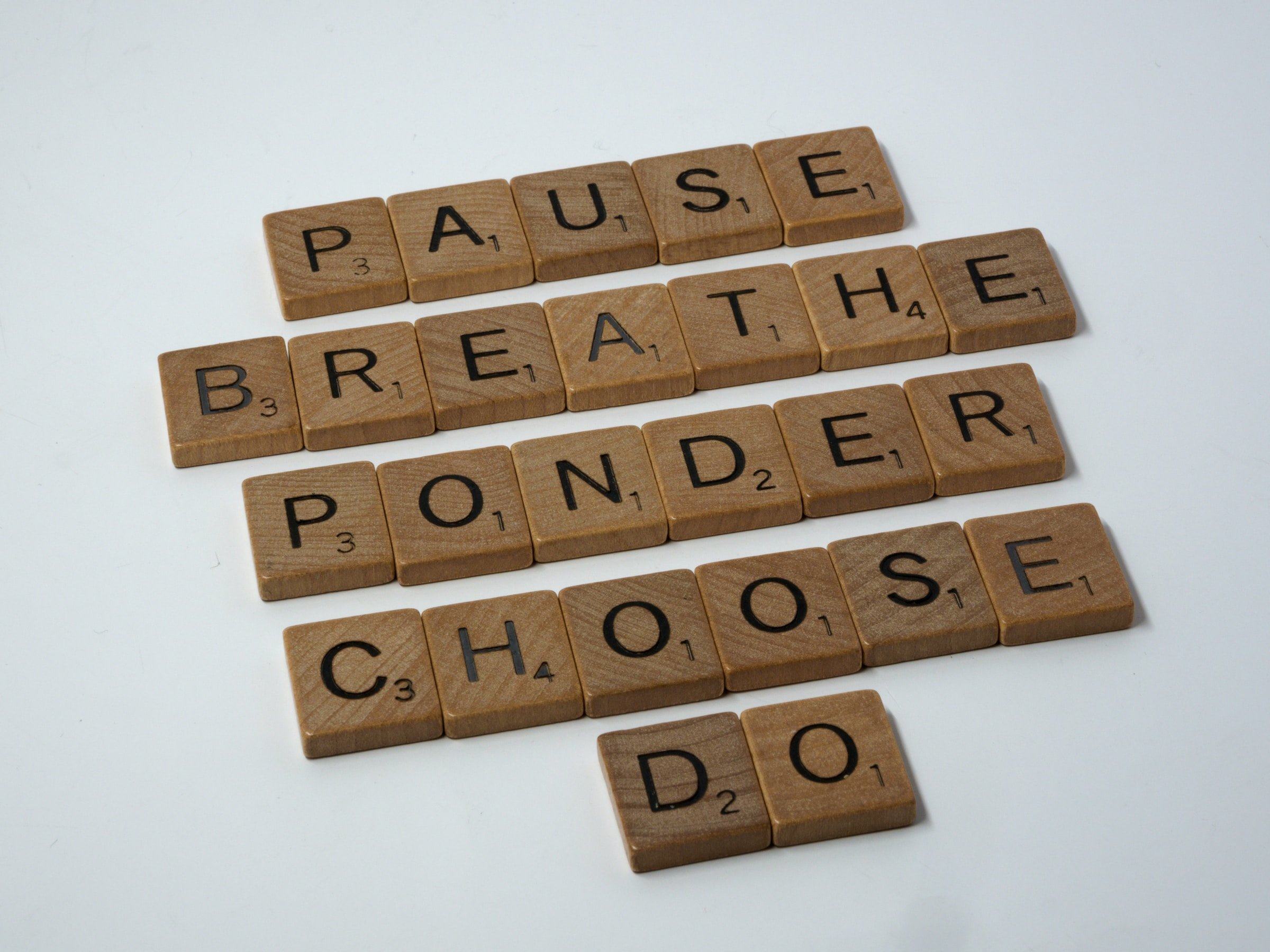
Who Is Your North Star?
I love me some Mel Robbins. I love listening to her podcast, because she gives down-to-earth, no-nonsense advice on how to live your best life.
Of course, the best advice in the world is no good if you don’t apply it, and a recent episode had me thinking: What is the North Star of my writing?
This concept comes from an exercise that Mel’s daughter did in her performing arts program at university. Your North Star is simply the person whose creative journey most inspires your own.

What Is Your Writing Starting Ritual?
Let’s face it, the blank page can be daunting. Once we settle on a schedule for writing, we still have to show up and do the work. In that moment of decision, it’s easy to defer our writing until later, until tomorrow, until we feel like it...
News flash: you may not ever “feel like it.” You’re not going to come to the page super-motivated every day. If you only write when you feel like it, you probably won’t get much writing done.
Having a starting ritual can help.

Your Summer 2023 Writing Plan
Now that summer has officially begun, it’s time to think about your writing goals! What are you hoping to accomplish in the next three months?

Writing Goes Bananas
Lately I’ve gotten hooked on watching baseball again. Not just any baseball, but Bananaball, as played by the Savannah Bananas.
They play their own game, with their own rules, similar to but not the same as regular baseball. Their rules are designed to make the game more fun, and move faster. Most of all, they center the audience rather than the players.

What to Do When You’re Stuck in Your Story
This week, I’m feeling stuck in my manuscript revision. I have some big decisions to make that will affect the rest of the story. I have ideas, but they will take the story in different directions. I’m feeling bogged down and anxious as to which direction will make the most sense and be the most interesting for the story.
Which just goes to show, even when there’s a plan for editing your book, it’s easy to get sidetracked and lose focus.

Progress, Practice, Process, and Purpose
I recently reviewed Eric Maisel’s new book, The Coach’s Way. Last week I mentioned one concept from the book, think thoughts that serve you. Simple, but how many of us fill our days (and minds) with doubts, fears, complaints? If you’re going to create consistently, it’s important to keep the negativity in check. According to Maisel, it’s also vital to focus on 4 other attributes of creative work: Progress, Practice, Process, and Purpose

Think Thoughts That Serve You
Last week we talked about how our vision is always ahead of our creative execution, and how that can be a good thing. The vision can pull us forward toward realizing our dreams.
But there may come moments when The Gap feels insurmountable. Or we may get discouraging feedback that makes us wonder if it’s worth it to continue.

Vision is Always Ahead of Execution
In Art and Fear, David Bayles and Ted Orland say:
“Vision, Uncertainty, and Knowledge of Materials are inevitabilities that all artists must acknowledge and learn from: vision is always ahead of execution, knowledge of materials is your contact with reality, and uncertainty is a virtue.”

How to Keep Writing No Matter What
A little while ago I was invited to be a panel guest on the topic of “How to Keep Writing No Matter What” at the Lesley University MFA program, where I got my MFA a number of years ago. I faced an auditorium of MFA students who no doubt strongly believe that they will defy the odds and continue writing after they no longer have regular deadlines and faculty giving them tons of helpful feedback and encouragement.
Frankly, many of them won’t.

The Next Step for Revision – Create Your As-Is and Revised Story Maps
Once you’ve read through your manuscript and answered all the questions from last week’s post, you need to make a plan for actually doing the revision.
No, it’s not time to start writing yet! At this point, you’ve probably identified a bunch of issues you need to deal with. Questions to be resolved, decisions to be made, scenes to be combined/added/changed/deleted. Characters to be combined or cut. You get the idea.

5 Questions to Ask Before You Start Your Novel Revision
Phase I of revision on my novel is over - the read -through. I've read the whole thing and overall I'm pretty pleased with it (phew!). I've made notes on all the major things that need to be decided/changed/added/removed. Now comes the hard part: actually making those decisions and beginning to implement them.

Resources and Prompts for National Poetry Month
April is National Poetry Month, which is a great opportunity to dive into poetry, whether or not you usually write it. If you do write it, it’s an opportunity to geek out with all your fellow poetry lovers. If you don’t, it’s an opportunity to try it out. Fiction and even nonfiction writers can learn a lot from experimenting with poetry. Creating evocative imagery, varying sentence rhythm and length, choosing just the right word, playing with language... these can all help you get out of any ruts your prose might have fallen into. Besides, it’s fun! If you’re not a poet, you don’t have to take your poetry so seriously. There’s no pressure to publish, and no one ever has to read it but you.

The Stoplight Method for Revision, Part III: Green Light Issues
Finally, we come to dealing with Green Light issues in your draft! For the past two weeks, I’ve talked about Red Light issues (the big-picture, foundational changes you need to make) and Yellow Light issues (the somewhat complex but more manageable issues you need to resolve). Now you’re ready to deal with the stuff that will really make your manuscript shine.

The Stoplight Method for Revision, Part II: Yellow Light Issues
Last week I gave an overview of the Stoplight method for revision, focusing on the Red Light issues – the major issues you need to deal with before anything else. This is by far the hardest part of revision, since it involves looking at things like character arc and structure.

The Stoplight Method for Revision, Part I: Red Light Issues
Have you ever finished a manuscript, and wondered, Now what do I do? If so, you are not alone. The majority of writers think that revision means “go back to the beginning and start from page 1 and then edit each line.”
WRONG.

Where Do You Get Your Inspiration?
This month I’m celebrating finally finishing the draft of the rewrite of my Middle Grande novel. It was pretty much a Page One rewrite, and frankly I’m not sure it’s any better than the original. It was fun to do, but I’m glad it’s over. Well, not over - I still have to revise. But first I need to let it sit for a while. I need to let all the questions percolate in my brain. Then I’ll re-read it and see what I’ve got.

What To Do When You Have Too Many Ideas
This past weekend, I found myself in a Läderach chocolate shop very similar to the one in the above image. I hadn’t had Läderach chocolates since my last trip through Zurich in 2018, and let me tell you, they are divine. I recently learned they opened a shop in Boston, and it was all I could do to restrain myself from heading there the next day, work obligations be damned.

Making a Scene: How to Go Deep to Maximize Action and Emotion
This week I hit that pivotal moment in my novel, where we turn into Act III. It’s a good place for an “all is lost” moment. Maybe even a culmination of many moments, where the Protagonist realizes nothing is going right, and it’s her against the world.

New Year’s Goal Check-in: 7 Ways to Rev Up Your Motivation if the Winter Blues Are Setting In
Google “What percentage of people give up their new year resolutions by February” and you get a consistent statistic: 80%. I have no idea how accurate that is, but it seems pretty consistent with the fact that for most people I know, myself included, commitment starts to flag right around this time.

How Watching Films & TV Can Improve Your Writing
Awesome! You mean all my hours of binge-watching Netflix, HBOMax, Amazon Prime, AppleTV+, Disney+, Hulu, etc., etc. Are actually helping my writing?
Well, yes, and no.
